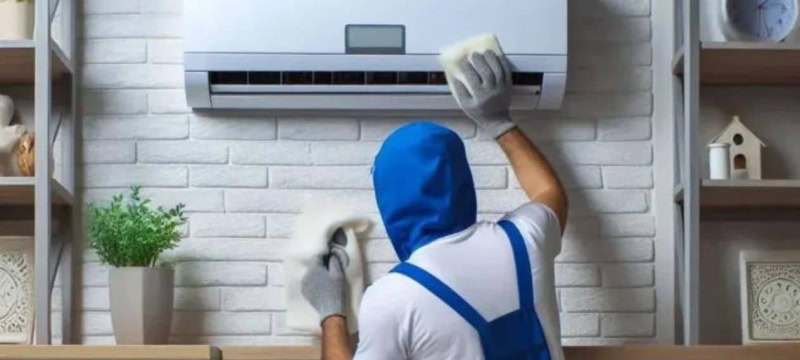In the scorching heat of summer, air conditioning units become our lifelines, keeping us cool as temperatures climb past 50°C. But imagine this: the very device designed to save us from the heat might be causing an even bigger danger. Recent tragic incidents have highlighted a serious risk with air conditioners, particularly involving R-32 refrigerant gas.
In the past two months alone, explosions linked to this gas have claimed the lives of 16 people. Faisalabad has been the hardest hit, with 14 fatalities across two separate explosions. Karachi and Dera Ismail Khan each reported a death.
Read more: How to Stay Cool During Heatwaves?
Investigations point to R-32, a colorless, odorless, and highly pressurized gas, as the culprit. This gas is known for its potential to cause explosions if there are any faults in the system or if there are issues with the equipment.
Engineers worldwide are sounding the alarm about the dangers of R-32, which is becoming increasingly common due to its efficiency compared to older refrigerants. However, the real issue seems to lie with the quality of components used in air conditioners. Reports suggest that manufacturers are cutting corners on essential parts like compressors and valves, leading to deadly consequences. The situation is exacerbated by the fact that R-32 leaks are hard to detect and can be ignited by something as small as a spark from a switch or match.
So, what can you do to protect yourself and your loved ones from these dangerous situations? Here are some practical steps to keep your AC safe and ensure it continues to serve its purpose without adding to the heat:
What Causes Air Conditioner Explosions?
- Overworking Your AC: Continuous use in extreme heat can push your air conditioner beyond its limits, leading to overheating and potential fires.
- Refrigerant Gas Leaks: If the refrigerant gas, like R-32, escapes, it can cause the unit to overheat and possibly explode.
- Electrical Voltage Irregularities: Frequent voltage changes can damage crucial components like the compressor, causing overheating and increasing the risk of fire.
How to Prevent AC Explosions
- Schedule Regular Breaks: Allow your AC to rest every 2-3 hours during intense heat to avoid overheating.
- Perform Routine Maintenance: Regular inspections can identify and fix leaks, blockages or other issues before they become serious problems.
- Install a Voltage Regulator: Protect your AC from damage caused by voltage fluctuations by using a voltage stabilizer.
- Use a Dedicated Electrical Circuit: Ensure your air conditioner has its own circuit to prevent overloading.
- Opt for Professional Installation: Have a certified technician install your AC to ensure it’s done correctly and safely.







